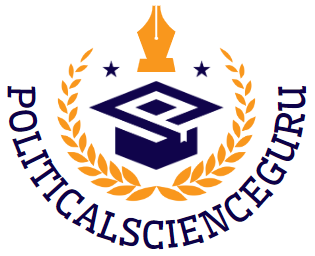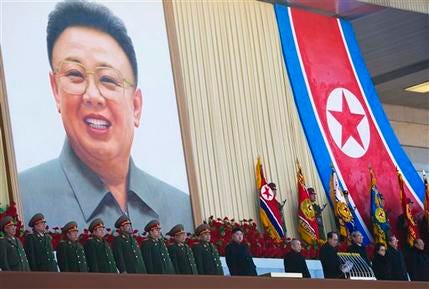Unlimited government is a form of governance where all power is concentrated in the hands of the leader and their appointees, with no limits or restrictions on their authority. There is often no constitution or weak laws to provide checks and balances on the leader’s power.
Examples of unlimited government include monarchy, dictatorship, theocracy, and oligarchy. In these systems, the leader is above the law and can rule the nation-state as they please, without being held accountable to the people. This type of government often leads to oppression and abuses of power, as there are no effective means of restraining the leader’s authority.

Credit: www.theatlantic.com
Characteristics Of Unlimited Government
Unlimited government refers to a political system where control is placed entirely in the hands of the leader and their appointees. In such governments, there is no limit or restraint placed on the leader’s power. This absence of checks and balances can lead to a concentration of power and a lack of accountability. Here are some key characteristics of unlimited government:
Complete Control In Leader’s Hands
In an unlimited government, the leader exercises complete control over the nation-state. They have the authority to make decisions, enact laws, and implement policies without any opposition. The leader’s power is often unchecked, allowing them to enforce their will upon the people and institutions of the country. This concentration of power can lead to the suppression of dissent and the violation of individual rights.
No Or Weak Constitution
Unlike limited governments that are bound by a constitution, unlimited governments often lack a strong constitution or have one that can be easily manipulated or disregarded by the leader. This absence or weakness of a constitution allows the leader to shape the government’s structure and functions according to their own interests and desires. It further enables them to exercise unchecked power and potentially exploit their position for personal gain.
Forms Of Unlimited Governments
Unlimited government can take various forms, depending on the specific nature of the ruling authority. Some examples of unlimited government include:
- Monarchy: A system in which power is passed down through hereditary lines, with the ruler holding absolute authority.
- Dictatorship: A government where power is held by a single individual who maintains control through force and repression.
- Theocracy: A political structure in which religious leaders hold the highest positions of power and authority.
- Oligarchy: A system in which a small group of individuals, often elite or wealthy, hold and exercise power.
These different forms of unlimited government share the common characteristics of unchecked power and a lack of accountability to the people they govern.

Credit: www.bloomberg.com
Comparison With Limited Government
Unlimited government refers to a political system where the leader and their appointees have complete control and there are no limits on their power. This type of government often lacks a strong constitution and can include examples such as monarchies, dictatorships, theocracies, and oligarchies.
n the constitution. Power is divided among different branches of government. Ex: Democracy, Republic. Unlimited Government and Limited Government are two contrasting forms of governance. While unlimited government gives all the power to the leader and their appointees with no restrictions, limited government distributes power among different branches and restricts the authority through checks and balances.Definition
Unlimited government, also known as an autocracy, is a type of government where absolute power rests in the hands of the leader and their appointed officials. In this system, there are no limits or restrictions on the leader’s power, and they are not accountable to the people. An unlimited government often lacks a strong or defined constitution, allowing the leader to exercise their authority unchecked. On the other hand, limited government is a political structure that aims to prevent abuse of power by distributing authority among different branches. In a limited government, laws and a constitution serve as the foundation, outlining the powers and limitations of the government. This type of government provides a system of checks and balances, ensuring that no single individual or group can accumulate excessive power.Examples
Examples of unlimited governments include monarchies, dictatorships, theocracies, and oligarchies. In a monarchy, the ruling power is passed down through generations within a royal family, and the monarch holds ultimate authority. Dictatorships are characterized by a single individual who holds absolute power and rules with little or no regard for the rights or opinions of the citizens. Theocracies are governed by religious leaders, and their rule is justified based on religious doctrine. Oligarchies are dominated by a small group of individuals who exercise control over the government. In contrast, examples of limited governments include democracies and republics. In a democracy, power is vested in the hands of the people, who exercise their authority through elected representatives. The government’s actions and decisions are guided by the constitution and laws, ensuring that the will of the people is upheld. A republic is a form of government where the head of state is an elected or appointed individual, and they hold power according to the constitution and laws. In conclusion, the distinction between unlimited government and limited government lies in the concentration of power and the presence or absence of checks and balances. While unlimited governments grant unrestricted authority to the leader, limited governments distribute power and establish mechanisms to prevent the abuse of power. The choice between these two forms of governance has significant implications for the rights and freedoms of the citizens.
Credit: www.indystar.com
Frequently Asked Questions Of What Is Unlimited Government
What Does Unlimited Government Mean?
Unlimited government means all power is in the hands of a leader and there is no limit to their power. There is no strong constitution. Examples include monarchy, dictatorship, theocracy, and oligarchy.
Which Best Describes An Unlimited Government?
Unlimited government is when the leader has complete control and there are no limits on their power. No accountability to the people.
What Is A Government With Unlimited Power Called?
An autocracy is a government with unlimited power, controlled by one person with absolute authority. This type of government often leads to brutal regimes due to the lack of accountability to the people. Autocracies are examples of unlimited governments.
What Is An Example Of A Limited Government?
Limited government is a political structure that limits the powers of the government to prevent abuse. Democracy is an example of limited government, where power is distributed across the cabinet and excessive influence is restricted.
Conclusion
Unlimited governments possess boundless power and their leaders have absolute control over the nation-state without any obligations to the people. Unlike limited governments, unlimited governments lack regulations and legal restraints, allowing for potential abuse of power. Constitutions and laws are crucial in limiting the authority of government officials to ensure they do not exploit the populace.
It is essential to understand the characteristics and implications of unlimited government to safeguard individual liberties and promote a healthy democratic society.

